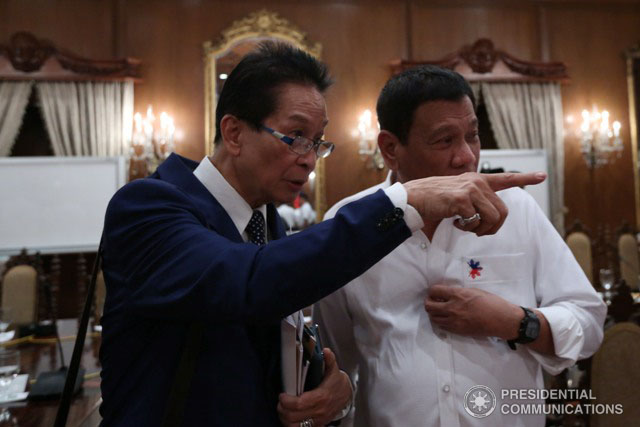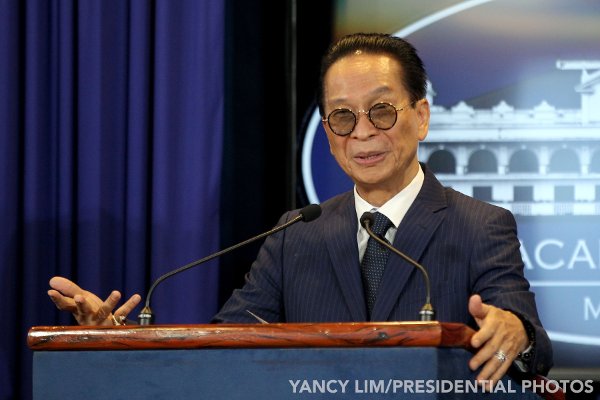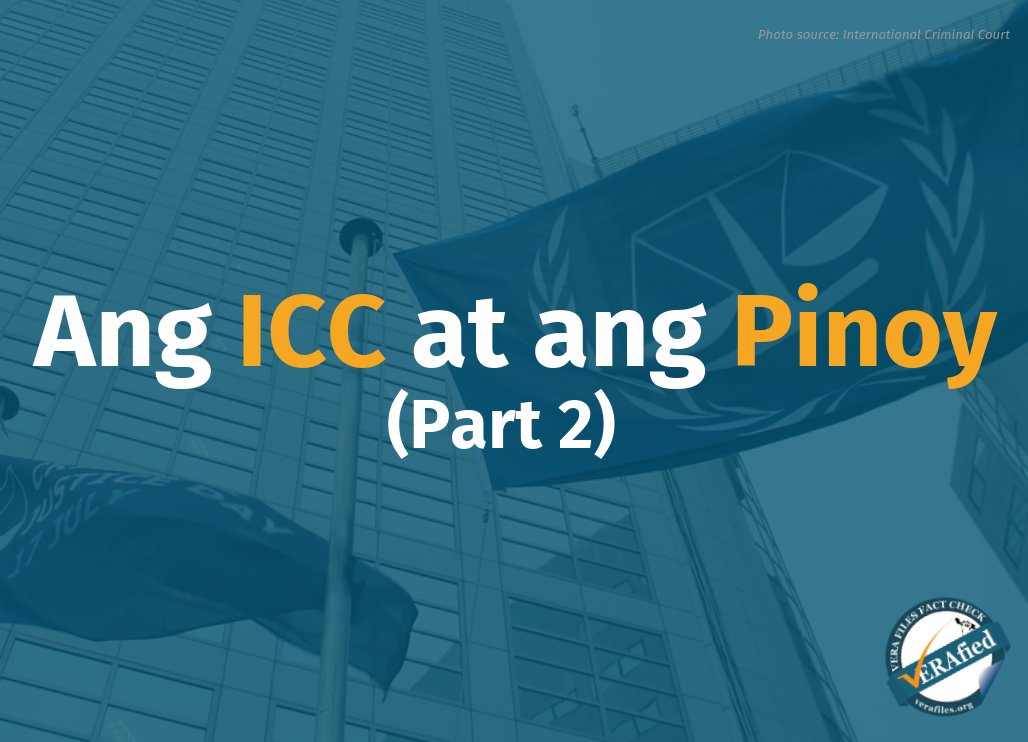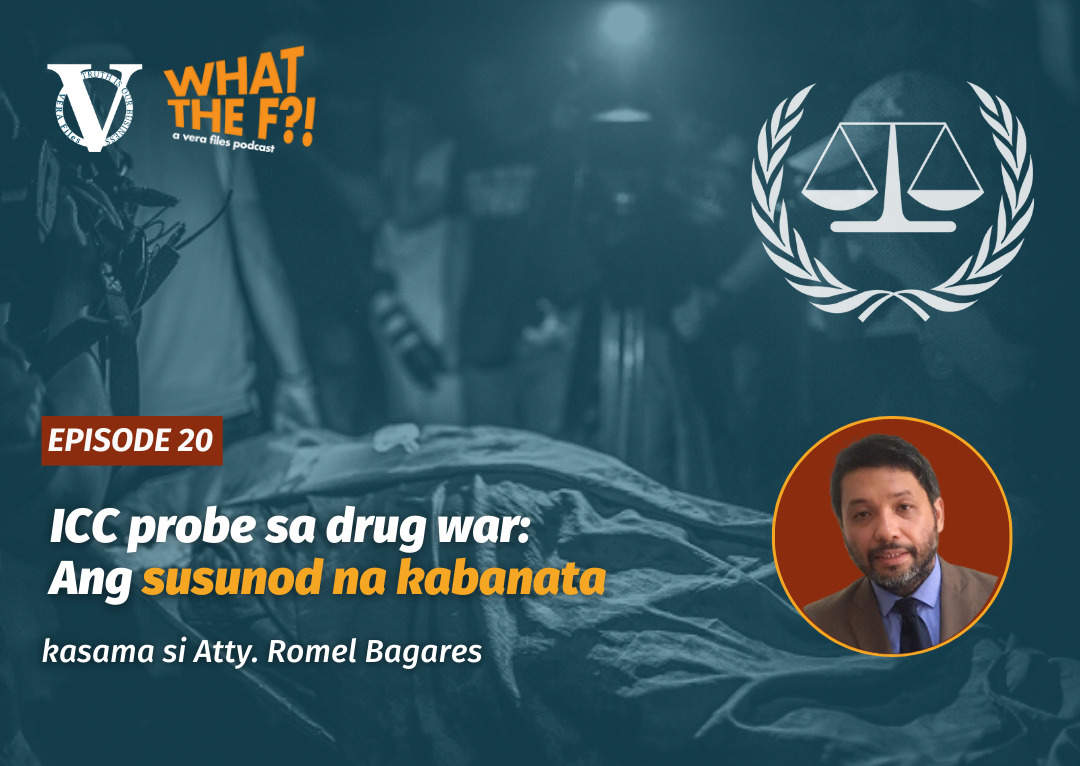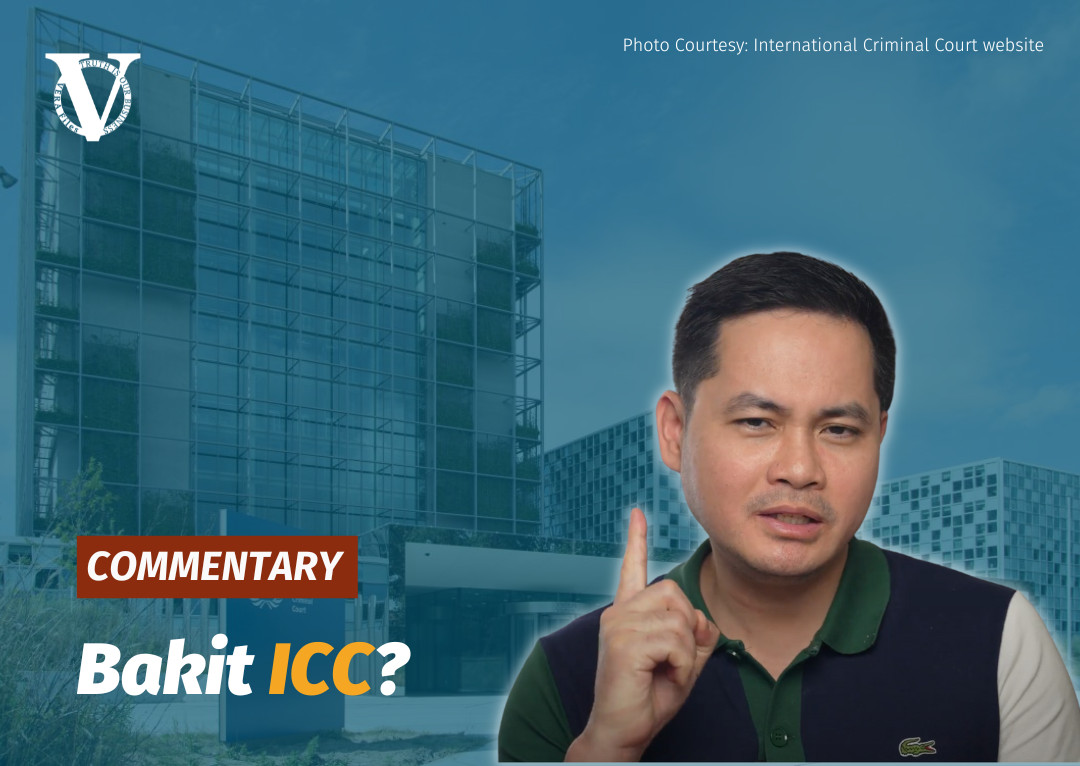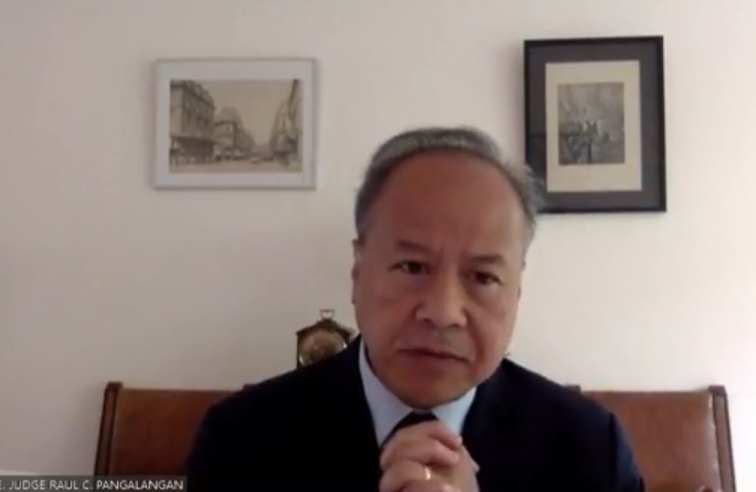
Former ICC judge Raul Pangalangan
(This report was first posted on June 27, 2021)
The International Criminal Court (ICC) has issued the call for families of victims of the Philippine government’s war on drugs (WoD) to submit their concerns and views in connection with the request of the prosecutor for authorization to proceed with an investigation, a recently-retired ICC judge said on Friday.
Raul Pangalangan, who ended last March his six-year term as a judge at the ICC, shared this information during an online forum “Crimes Against Humanity and the ICC,” organized by the UP Institute of Human Rights and UP Institute of International Legal Studies, together with the Integrated Bar of the Philippines.
Pangalangan said, “If you go to the ICC website, there’s already a call for the victims to step forward.” The call is for the submission of information to the court regarding the government’s WoD that, in the words just-retired prosecutor Fatou Bensouda, has ”unlawfully killed between several thousand and tens of thousands of civilians.” (See Gov’t officials, police conspired to carry out Duterte’s war on drugs — ICC prosecutor – Vera Files)
Bensouda, who retired last June 15, conducted a preliminary examination on the extrajudicial killings associated with the drug war from the start of the presidency of Rodrigo Duterte on July 1, 2016 up to March 16, 2019 when the Philippines withdrew its membership from the ICC.
Pangalangan also said Bensouda made the request to the Pre-Trial Chamber (PTC) for an authority to investigate as early as May 24 but was made public only on June 14, the day before her retirement.
If the PTC grants the request, the new prosecutor, Karim Khan will handle the investigation.
Elaborating on ICC’s call for victims to come forward, Pangalangan said: “Please note that a cornerstone of the Rome Statute is focused on the victims. Both in terms of the victim reparations and also in terms of victims’ participation.”
The ICC website said: “Victims of the alleged crimes have the right to submit ‘representations’ as per the ICC legal framework; this means that victims may provide their views, concerns and expectations regarding the Prosecutor’s request to the ICC Judges for their consideration.”
It further said: “The Victims Participation and Reparations Section (VPRS) of the Registry is responsible for assisting victims in the process of submitting representations.”
Deadline for the submission of victim representations, which is voluntary and free of charge, is on Aug. 13.
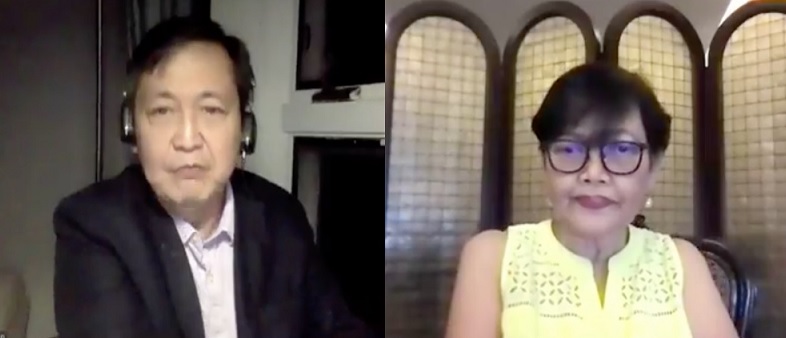
Ruben Carranza of the International Center for Transitional Justice and Socorro Reyes of the Center for Legal Development
Lawyer Ruben Carranza, reparations expert at the International Center for Transitional Justice (ICTJ) and one of the speakers in the forum, made the distinction between “representations to express their views at this stage [and] representations at the pre-trial stage.”
This is underscored in the website for the call for victims to come forward, saying: “Please also note that this is not (yet) an application process for participation in court proceedings against an accused person or for obtaining reparations before the ICC. The process initiated by the Prosecutor is limited to the submission of victims’ views, concerns and expectations on the Prosecutor’s request to open an investigation regarding alleged murder and other crimes which are sufficiently linked to the “war on drugs” campaign as set out above. “
The ICC’s victim’s booklet provides that their family members who suffered harm, such as emotional suffering or material loss, due to the killings can be considered as victims by the court’s judges.
“Filipinos who
consider themselves victims of the war on drugs can fill out this form. NGOs
that have helped Filipinos who have been victims in the war on drugs can also
help fill out this form. Now, imagine how many Filipinos those will be?,” Carranza said.
In the case of Uganda’s Dominic Ongwen, a former child soldier and commander of one of the brigades of the Ugandan guerilla group Lord’s Resistance Army, who was convicted by the ICC for crimes against humanity,Carranza said there were at least 5,000 victims representations.
“It’s possible that in the Philippine situation, we will have far more than what has been the largest number of victims in the ICC case,” he said, noting the description used by Bensouda of the scale and gravity of Duterte’s war on drugs.
Socorro Reyes, women’s rights advocate and regional governance adviser for the Center for Legal Development, urged the families of drug war victims who are reluctant to submit sworn statements or affidavits to tell their “true” stories. She said the documentation of their suffering is not only for reparations but also for truth-telling and “to give face to the numbers.”
“Para magkaroon ng kuwento iyong totoong nangyari sa inyo …at para iyan ay hindi malimutan. Kung hindi man magamit sa reparations, sa investigation ng pre-trial chamber, ng trial chamber. Kailangan masabi ang katotohanan at maging aware sila sa kanilang karapatan,” said Reyes, who served for six years as chief of the Asia-Pacific and Arab states of the United Nations Entity for Gender Equality and the Empowerment of Women (UN Women).
Reyes, who conducted research into the impact of extrajudicial killings to Filipino households, noted each victim of extrajudicial killings in the country leaves one woman and at least four children. She said the number of these women and children could have reached 60,000 to 100,000 who were adversely affected by the killings of 12,000 to 20,000 suspected drug personalities in Duterte’s drug war.
Forms for victims who wish to submit representations to the ICC can be accessed here (PDF file).
(This report was carried also by ABS-CBN News online.)
